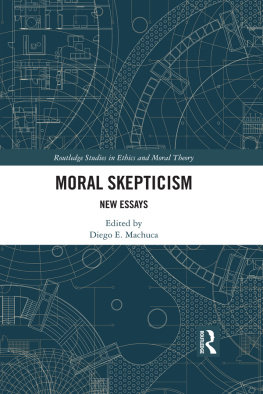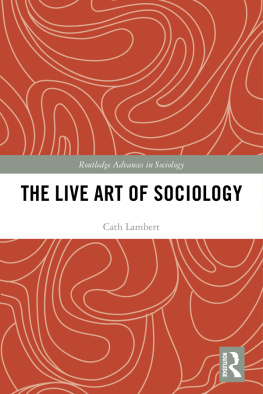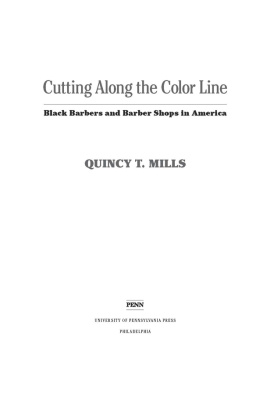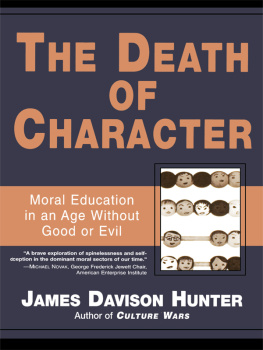TRANSCENDINGthe Color LINE
TRANSCENDINGthe Color LINE
The Sociology ofBLACK EXPERIENCEin America
BOBBY E. MILLS, PHD
NEW YORK
TRANSCENDINGthe Color LINE
The Sociology ofBLACK EXPERIENCEin America
2015 Bobby E. Mills, PhD.
All rights reserved. No portion of this book may be reproduced, stored in a retrieval system, or transmitted in any form or by any meanselectronic, mechanical, photocopy, recording, scanning, or otherexcept for brief quotations in critical reviews or articles, without the prior written permission of the publisher.
Published in New York, New York, by Morgan James Publishing. Morgan James and The Entrepreneurial Publisher are trademarks of Morgan James, LLC.
www.MorganJamesPublishing.com
The Morgan James Speakers Group can bring authors to your live event. For more information or to book an event visit The Morgan James Speakers Group at
www.TheMorganJamesSpeakersGroup.com.
All Scripture is taken from the King James Version of the Holy Bible.
ISBN 978-1-63047-316-7 paperback
ISBN 978-1-63047-317-4 eBook
ISBN 978-1-63047-318-1 hardcover
Library of Congress Control Number: 2014944083
Cover Design by:
Rachel Lopez
www.r2cdesign.com
Interior Design by:
Bonnie Bushman
In an effort to support local communities, raise awareness and funds, Morgan James Publishing donates a percentage of all book sales for the life of each book to Habitat for Humanity Peninsula and Greater Williamsburg.
 | Get involved today, visit
www.MorganJamesBuilds.com |  |
TABLE OF CONTENTS
ACKNOWLEDGMENTS
The sociology of my personal experience has been grounded in meaningful, spiritually based, personal and professional life experiences and relationships. In the same way, the essays in this book are the product of loving family relationshipsespecially with my wife Larnita, son Daryl, and daughters Kelly and Karenprofessional relationships, and personal longtime friendships.
Therefore, grateful appreciation and heartfelt thanks are extended to Clara M. Bowman for her assistance with the manuscript organization and formatting. To Denise Christine Brown, who read the manuscript for organizational structure and writing style. To Charles W. Moore, for our friendship and stimulating, spiritually based philosophical discussions over thirty-five years of attempting to make a difference in black community life as well as society in general. To Pastor Raymond L. Farley, for our spiritually based friendship over the past thirty-five years.
Finally, to Amanda Rooker at SplitSeed, for her tireless professional editing of the manuscript, as well as her spiritual insights in helping to bridge the racial divide in American society.
I love and thank you all; therefore, God bless you and yours!
INTRODUCTION
This collection of essays is a philosophical attempt at making sense out of the American black collective experience. These essays do not reflect traditional sociological theoretical perspectives and methodological considerations. Instead, the query is: How do we actually live? More importantly, what are we willing to sacrifice in order to live the way we say we want to live? Invariably the search for moral understanding and spiritual meaning is neither easy nor popular. It is indeed the abstract empirical (amoral and apolitical) character of sociology that has all but rendered it irrelevant to the resolution of contemporary social problems. In short, it is the biased initial theoretical assumptions of the scientific method (abstract empiricism) that are the social basis for collective bias via the illusion of value neutrality. This collective cultural bias is the social foundation for institutional racism, sexism, theological dogmatism (denominationalism), and above all authoritarianism. An ism is a schism, and schisms divide. Without a doubt, either/or logic fosters cultural extremism rather than a universal perspective on humanity.
So perhaps our true query is: should sociology be the sociology of social justification (democratic elitism) or the sociology of social justice (freedom and social equity)?
I offer this collection of essays as a down payment on the sociology of freedom. We need to heal the racial divide in American society once and for all. My hope is that these essays will serve as an intellectual framework for reconciling some of the numerous ideological contradictions that exist between individuals, ethnic social groups, and members of American society in general. They are all based on the understanding that the longest journey is the journey within, and it begins with the first steps of self-introspection. God hates prejudice and racism. The story of Mosess marriage to the Cushite woman teaches us this profound spiritual lesson. The anger of Aaron and Miriam because of the marriage of Moses caused God to descend from heaven in a pillar of cloud and stand at the doorway of the tent (see Numbers 1-16; God created all individuals out of one blood. Life and death are in the tongue, not skin color. Keep your tongue from evil, and your lips from speaking guile Psalm 34:13). God is an ever present help; however when God makes His presence known, He shows up and shows out for the righteousness of His kingdom and then moves on.
Within any social group, the task of a leader is threefold: to have a vision for the future (particularly for the children), to lead by visionary example, and to take followers where they have not been. Also, individuals cannot become good leaders unless they have been good followers. As an ethnic group, blacks have three basic primary institutions: family, church, and historically black colleges and universities (HBCUs). All three have major dysfunctional issues, and blacks must take responsibility for the existence of these institutional dysfunctions. (Blacks also have two secondary social institutions: barber shops and beauty salons.)
Unfortunately, all three primary institutions are in a state of moral and spiritual decline because the leadership in all three institutions has devolved into a self-serving mentality. Yet it is also true that blacks have lost a sense of tight-knit community, which came under attack by the forces of institutional racism during the process of desegregation. Therefore it is also my hope that this collection of essays will inspire some creative ideas about revitalizing our spiritual, moral, and socio-economic institutions as we attempt to recover the universal sense of common humanity lost in the desegregation process.
In my opinion, the cornerstone problem in the black community is the inability of blacks to hold each other accountable. One white man can hold one thousand blacks accountable, but one thousand blacks cannot hold one black individual accountable. As a result of institutional racism and the horrible after-effects of chattel slavery, whites have become the only ones who can discipline blacks. (Of course, this is not by choice but by institutional and cultural design.) Those who have the power to discipline through the strength of the law and the gun inherently have social and cultural rule. Yet increasingly it has also become virtually impossible for blacks to morally discipline each other because of the spiritual and moral decay of the institutional structures of the black community, namely the attitude that nobody can tell me anything.












